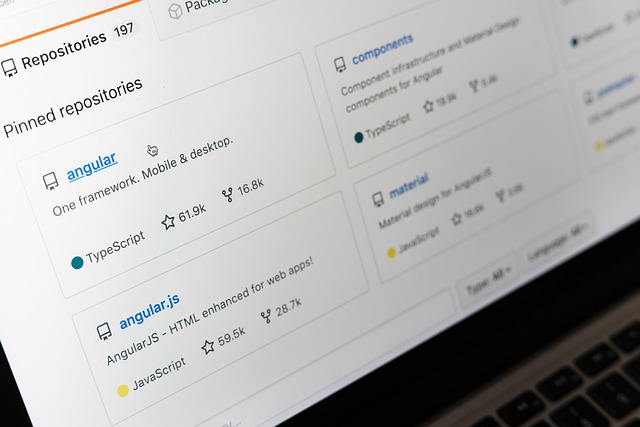Usually, if the page doesn’t open within a few seconds, we head elsewhere.
This is where user experience comes into play.
SEO is not only important for search engines, but also for users.
User experience is a factor that directly affects the success of your website. Imagine you set off for work in the morning and the traffic lights are red every time.
Annoying, isn’t it?
The internet is similar.
The longer your page takes to load, the less patience users have.
Fast-loading pages make users stay longer, which boosts your SEO rankings.
Delays of a few seconds can cause you to lose traffic. We do everything with our phones now.
Mobile compatibility is an important part of the user experience.
If a site doesn’t look right on mobile devices, users are fleeing.
A mobile-friendly site attracts more users and increases conversion rates.
After all, a happy user means a loyal customer. Users are not only looking for a fast site, but also for valuable content.
Information needs to be accurate, up-to-date and engaging.
Users understand how useful your content is by experiencing it.
Good content boosts your SEO rankings and keeps users coming back. Users don’t want to get lost on your site.
Fast and clear navigation makes it easy for users to find what they’re looking for.
Complex menus can drive users away.
A simple design improves the user experience and reflects positively on your SEO performance.

Speed, mobile-friendliness, content quality and navigation all determine the user experience on your site.
Remember, happy users are your greatest allies on the road to success!
User Experience in SEO Success: Why It Can No Longer Be Ignored

So why is it so important?
Think about how users interact with your website; metrics such as time on page, bounce rate and conversion rates are critical for search engines.
If users aren’t spending time on your site and exploring your content, this can negatively impact your SEO score.
This is where UX comes into play. At the end of the day, everyone wants fast results.
If your website takes even a few seconds longer to load, users will become impatient and move on to other pages.
A slow site not only results in lost users, but also a low score in the eyes of search engines.
Investing in speed optimization to improve user experience is one of the most effective ways to boost your SEO. Today, access to the internet from mobile devices is increasing.
If users cannot use the site comfortably on mobile, they may leave the page immediately.
A mobile-friendly design allows users to spend more time on your site.
This is a factor that search engines also take into account.
So, if you ignore UX, you will inevitably fall behind the competition. Users are looking for engaging and valuable content.
Even if your content is of high quality, if the navigation is complicated, users will get bored and leave your site.
A simple and clear menu structure allows users to easily find what they are looking for.
Providing content that responds to users’ needs not only improves your SEO, but also ensures that your visitors spend more time on your site.
User experience can no longer be ignored for SEO success.
Remember, a happy user is more likely to return and recommend you to others.
User Experience and SEO: How to Win Both?

But what opportunities arise when these two areas come together?
This is where things get very exciting! When you land on a website, first impressions are everything.
Slow opening pages, cluttered menus and content that makes you feel lost are the fastest ways to drive users away.
A good user experience keeps visitors on the site longer.
Imagine walking into a cafe and waiting to place your order.
If the waiter is slow, you’ll probably head elsewhere.
The same goes for websites; users don’t like waiting. Google pays attention to how long users stay on a site and the quality of the time they spend on it.
Sites with a good user experience rank higher in SEO rankings.
In other words, a site’s fast loading, mobile-friendly and user-friendly design attracts visitors and increases its value in the eyes of search engines.
If the user who visits a site exits immediately, this creates a negative signal for SEO. Getting feedback is critical to improving the user experience.
User feedback can help you understand what works and what doesn’t work on your site.
Finding out what users think through surveys or simple comment boxes can shape your SEO strategies.
For example, if users don’t find the content on a page useful, you can update that content to improve both the experience and SEO. User experience and SEO are two important elements that complement each other.
By bringing them together, you can both satisfy users and increase your visibility in search engines.
Achieving this balance will multiply the success of your website.
User Experience in Google’s Eyes: Why It’s a Priority in Your SEO Strategy
User experience is the feelings and interactions that a website offers to its visitors.
Elements such as page loading speed, mobile compatibility and content quality determine users’ first impressions of the site.
A fast-loading and user-friendly site makes visitors stay longer and increases interaction.
Imagine having to wait at the door of a restaurant!
Not a pleasant experience, is it? Because Google prioritizes user satisfaction, it uses complex algorithms to evaluate user experience.
Pages are scored on metrics such as how long users stay and which links they click on.
So, the more user-friendly your site is, the more Google loves it!
If your content is readable, useful and engaging, users will stay on your site longer, which will help you rank higher in search results. A high bounce rate shows Google that users are not satisfied on your site.
In this case, your ranking will be negatively affected.
Accurate content, fluid design and effective navigation are essential to improve user experience.
Remember, people log out when they are bored.
Imagine you are watching a movie, if it is boring, you will immediately look for another movie, right? By prioritizing user experience, you can strengthen your SEO strategies and gain value in the eyes of Google.
Remember, a successful website is like a shining star in the eyes of users.
5 Golden Rules for Combining SEO and User Experience
The importance of SEO for visibility in the digital world is indisputable.
But this doesn’t mean focusing only on search engines.
If you ignore the user experience, the traffic you get can cause you to lose potential customers.
So how do you combine SEO and user experience?
Here are five golden rules to consider! The load time of a web page is one of the most important factors affecting user experience.
If a page takes more than 3 seconds to load, you may start losing visitors.
So, optimize your images, remove unnecessary plugins and choose a fast hosting.
A fast site not only boosts SEO but also keeps users on your site longer. Today, the vast majority of people access the internet via their mobile devices.
If your site is not mobile-friendly, users will immediately go elsewhere.
Using responsive design ensures that users have a seamless experience on every platform.
This is critical for both SEO and user satisfaction. Search engines aim to provide users with the best experience.
Therefore, creating quality and engaging content is a must.
Engage users by using informative, entertaining and fluent language.
Place keywords in a natural way to boost SEO and provide value to your readers. Users want to find what they want quickly.
Complicated menus and confusing page layouts can drive users away from your site.
A simple and clear navigation structure will help visitors spend more time on your site.
It will also have a positive impact on your SEO performance. Users want to interact.
Allow users to share their opinions by offering comment sections, polls or social media links.
This enriches the user experience and also contributes to your site’s SEO.
Feedback helps you improve your site. By applying these five rules, you can perfectly combine SEO and user experience, and both rank high in search engines and increase the satisfaction of your visitors.
Remember, a successful website is a user-friendly one!
Frequently Asked Questions
Which Elements are Essential for a Good User Experience?
Elements such as simplicity, accessibility, consistency, quick turnaround, aesthetics and user feedback are important to improve the user experience.
These elements increase satisfaction by making it easier for users to interact with the product or service.
Why Fast Load Times are Critical for SEO?
Fast loading times of websites improve user experience and positively impact search engine rankings.
Visitors can quickly leave slow-loading pages, which increases the bounce rate.
Also, search engines tend to rank fast sites higher.
Therefore, fast loading times are critical for both user satisfaction and SEO performance.
How Does User Experience Affect SEO?
User experience directly affects your website’s SEO performance.
A good user experience increases page load speed, mobile compatibility and user interaction, allowing you to be better evaluated by search engines.
The time users spend on your site and their interaction rates increase your ranking.
Mobile Compatibility and SEO: How User Experience is Connected
Mobile compatibility ensures that websites display properly on mobile devices.
This positively impacts the user experience, increasing visitor engagement and improving SEO performance.
Search engines prioritize mobile-friendly sites, helping users achieve better rankings in search results.
What is the Importance of Improving User Experience on SEO?
User experience is a critical element for the success of your website.
A good user experience ensures that visitors stay on the site longer and interact with it.
This is perceived as a positive signal by search engines and can increase your rankings.
Meeting users’ needs, improving content quality and improving site speed directly affect SEO performance.